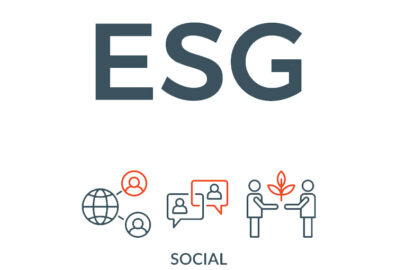Last month we began a series of articles looking at Environment, Social and Governance (ESG) policies, a particularly interesting and pertinent issue and one that is perhaps on the radar within business like never before.
Certainly, from a ‘business footprint’ perspective there is much that needs to be reviewed and evaluated, especially around the ‘Social’ element of ESG – the role your firm plays within its social ‘strata’ and what it can do to help employees and local communities.
With this article, we share how we – at Fleet Mortgages – have defined ‘Social’ and the proactive steps we are taking to make this world a better place. This includes our contribution to the various communities we are a part of and the outcomes we’re seeking to deliver. However, I suspect there will be a considerable cross-over with firms active in the mortgage market and therefore feel free to assess the areas where, like us, you can develop and grow your ‘Social’ footprint.
So, for us, Social in this context is about the progressive steps we can take in order to make a positive contribution in the lives of those who work with us, and others within our wider community. As a start therefore, it’s important to recognise which ‘stakeholder groups’ your firm is part of. Ours include staff, advisers, landlord customers, suppliers, and the communities in and around us, including schools and charities.
To that end, we came up with an over-riding ‘Social’ ambition – to create a working environment where staff can shine and develop their full potential, an environment where engagement with local communities is encouraged and where we make charitable contributions locally.
So, what might this mean in terms of tangible actions and the targets we wanted to achieve? Well, first up is our ambition for employees, those that make Fleet Mortgages what it is today. This means we create an environment where staff can fulfil their potential, a place they enjoy working and where they have opportunities to obtain a professional qualification.
While we cannot always guarantee staff a job for life we want staff to be employable, to develop transferable skills and to fulfil their true potential, with Fleet of course, but elsewhere should they chose to leave. This also means we want to, where possible, fill roles around the business by means of an apprenticeship scheme, which are a great way for younger staff to discover the right career for them.
Outside our organisation, we increased our support for those who might wish to carry out voluntary work within the community or for charitable organisations. Each year we allow every member of staff two days off to carry out voluntary work. This is not just an ambition; it is already happening. In 2019, 36% of our staff did one day or more of local volunteering and since then and for the obvious reason (coronavirus) our efforts slowed. Our ambition in 2022 is to get that number up to 10% again. As we return to a new normal, we would hope to inspire staff to do more volunteer and charitable work, to make a contribution, their time mostly but occasionally financial.
A further fundamental of the ‘Social’ element has to be staff wellbeing. Perhaps some of the good that has come from the coronavirus pandemic is the fact that people are more open to talk about mental health and wellbeing.
During the pandemic we recognised potential mental health concerns amongst employees. We made a conscious effort to support and promote positive psychological health monitoring, what we call, potential ‘hazards’ in this area, such as poor working conditions, offensive behaviour, work culture/organisational limitations, etc. Ultimately staff will vote with their feet finding new opportunities elsewhere if they are unhappy. That’s why we are proud of our high retention rate.
Regular staff one-to-one meetings can help a great deal here, and we always encourage staff to speak out. Should staff decide to explore opportunities elsewhere we take feedback from exit interviews to help change practices within the business which may not be so readily seen.
Finally, we want to look at both diversity and inclusion within our workplace; whether that is gender diversity within all our management groups or inclusion to ensure all individuals feel welcome. Our ambition here is to create a place where people can be confident in being themselves and feel they belong. As an example, more than 37% of the current Executive Committee is female, only a few years ago this figure was 14%.
Overall and in summary, as a business we want to make a positive contribution right across all our Social stakeholder groups. Encouraging activities that support this and making progressive steps that ensure we reflect society as it is, not what it might have been years ago.
Many businesses will be doing this already but a formal approach can also highlight areas that do require work, or which have not been addressed. It is an exercise I would encourage all firms to carry out regularly, and please don’t hesitate to share your successes.
Jannie Vermeulen is co-founder & chief risk officer at Fleet Mortgages
